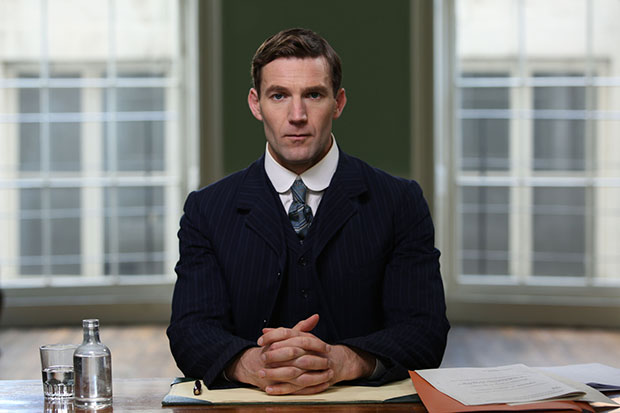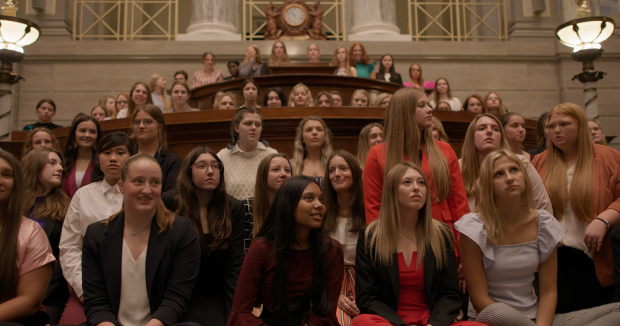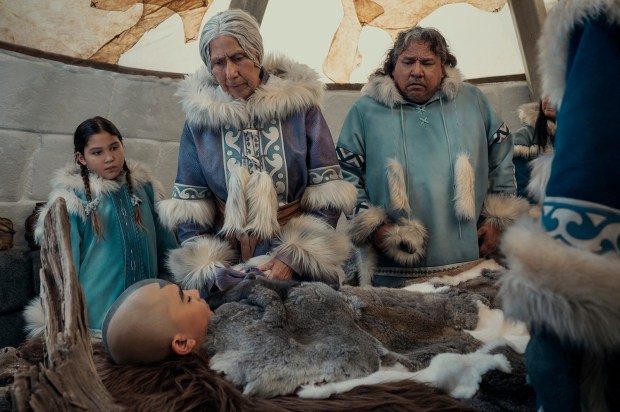Some years ago I paid a visit to the site of the Gallipoli landings because I was mildly obsessed with the Peter Weir movie and wanted to gauge for myself how horrible it must have been. En route I met up with a young Australian who was training to be an actor (in my false memory it was the unknown Russell Crowe) and together we clambered up the near-cliff-like slopes in the blazing sun, imagining the Turks sniping and rolling grenades at us from the trenches on top. That anyone could have survived at all, we agreed, was a miracle.
What I didn’t appreciate at the time was that the version of Gallipoli I had in my head — heroic young Aussies dying like flies while the incompetent British commanders drank tea on the beach — was largely the invention of one man, an Australian reporter called Keith Murdoch. He didn’t exactly lie about what happened. But he did embroider it with a bit of Pom-bashing spin, which is why, even to this day, we think of it as an Anzac affair, rather than as one in which the vast bulk of the fighting and dying was done by the British and the French (and Turks).
Murdoch invented Gallipoli. And in return, Gallipoli created Murdoch. Up until then the ambitious Keith had been rather unlucky in his career. In the 1900s, he’d scraped together enough money to buy his passage to England, only to be undone by his stammer, which cost him his job on the Pall Mall Gazette. Returning to Australia, with his tail between his legs, he hoped to be chosen as a correspondent in the war that had just broken out. But he lost out on the ballot by a single vote, and was given the lesser role of working for a cable news service based in London.
So Gallipoli — which he visited en route — was make or break time for Keith and he seized it with both hands. Murdoch’s masterstroke was to evade the censors by detailing the horrors of what was really happening in the Dardanelles with a long, passionate letter, which made its way into the hands of both the Australian prime minister and, eventually, those of his British counterpart Asquith, munitions minister Lloyd George, and most of their war cabinet. This led to the sacking of the expedition’s commander Sir Ian Hamilton and — the only part of the operation that was a success — the evacuation.
At least one of the historians consulted for Gallipoli: When Murdoch Went to War (BBC2, Saturday) pours scorn on Murdoch’s self-aggrandisement. ‘If he did see it, he saw it through a long pair of binoculars,’ he noted of Murdoch’s supposed eyewitness account of Aussie heroism during the landings. Others, including Max Hastings (perhaps recalling his own ingenuity in ensuring that his dispatches got out before those of his rivals in the Falklands), were more forgiving. ‘Boy, Keith Murdoch understood how to promote Keith Murdoch,’ he said, admiringly, adding that in any case, he’d seen far too many war correspondents risk their lives getting close to the action to no real avail because they lacked something far more important than heroism — an ability to write compelling copy.
Poor Sir Ian Hamilton probably didn’t deserve Murdoch’s hatchet job. He was an extremely brave, highly decorated, charming and kindly soldier-poet who just happened to have been given an impossible mission by the buffoon who had devised the fiasco — some fellow by the name of Winston Churchill. Unfortunately, Murdoch needed a hate figure to blame and Hamilton happened to suit his narrative. In other words, the documentary argued, Gallipoli was where Murdoch developed the sensationalist techniques on which his son Rupert would build his vast empire.
It was quite a coup for the programme to get Rupert talking about his dad. (Enthusiastically, of course. ‘I think it saved a lot of lives,’ he said of the letter.) And it was a fascinating eye-opener for those of us who had no idea till now of just how many extraordinary consequences resulted from the Dardanelles campaign: without it, you could argue, Keith might never have become ‘Lord Southcliffe’, Australia’s biggest media mogul with his Sun newspapers; this in turn might have meant that had there been no Gallipoli, there might also have been no Page 3 girls, no Fox News, no Simpsons and certainly no James Bond Tomorrow Never Dies.
I do hope the half-million soldiers who died at Gallipoli, looking down from heaven, have a sense of humour…
Got something to add? Join the discussion and comment below.
Get 10 issues for just $10
Subscribe to The Spectator Australia today for the next 10 magazine issues, plus full online access, for just $10.
You might disagree with half of it, but you’ll enjoy reading all of it. Try your first month for free, then just $2 a week for the remainder of your first year.















Comments
Don't miss out
Join the conversation with other Spectator Australia readers. Subscribe to leave a comment.
SUBSCRIBEAlready a subscriber? Log in